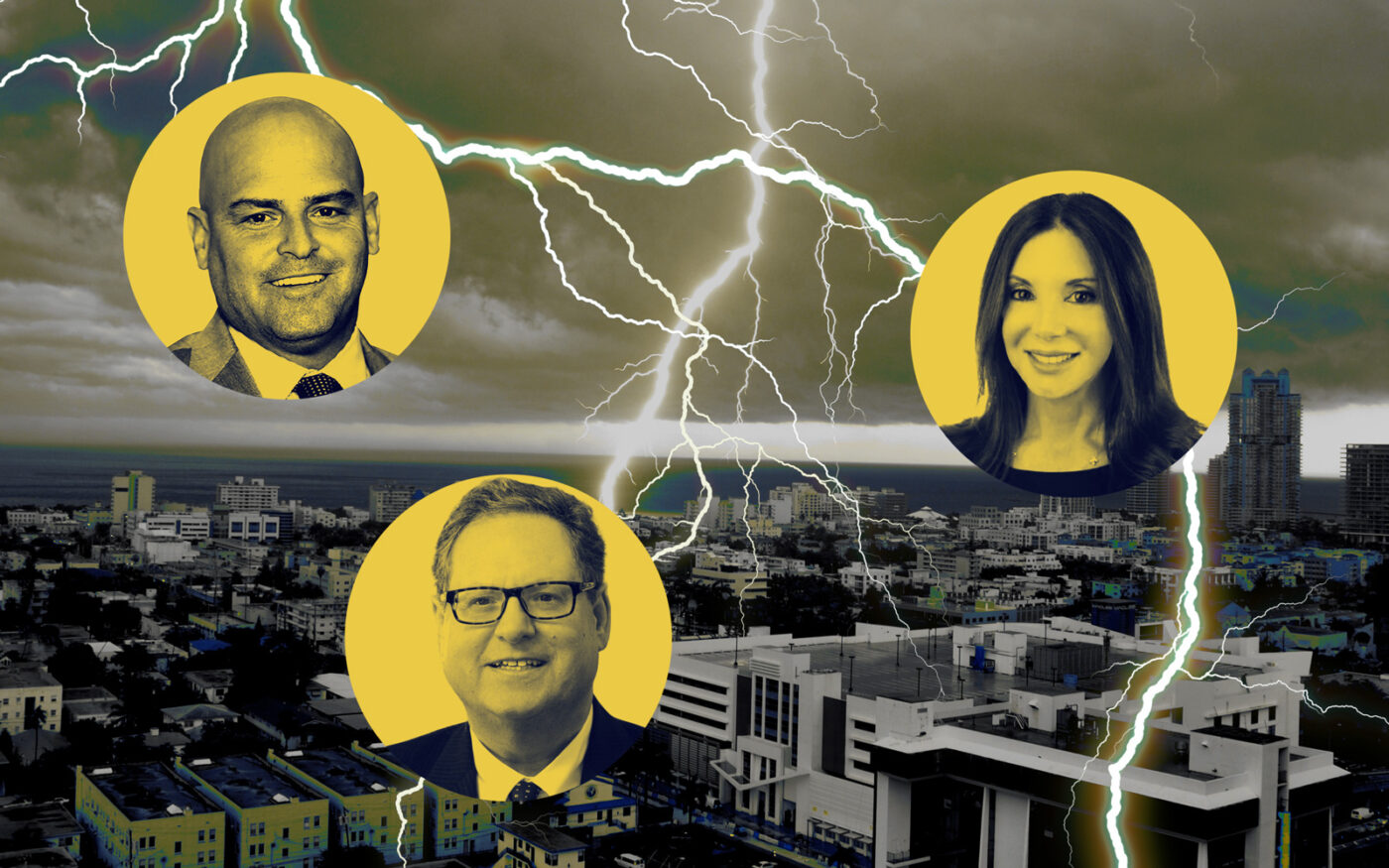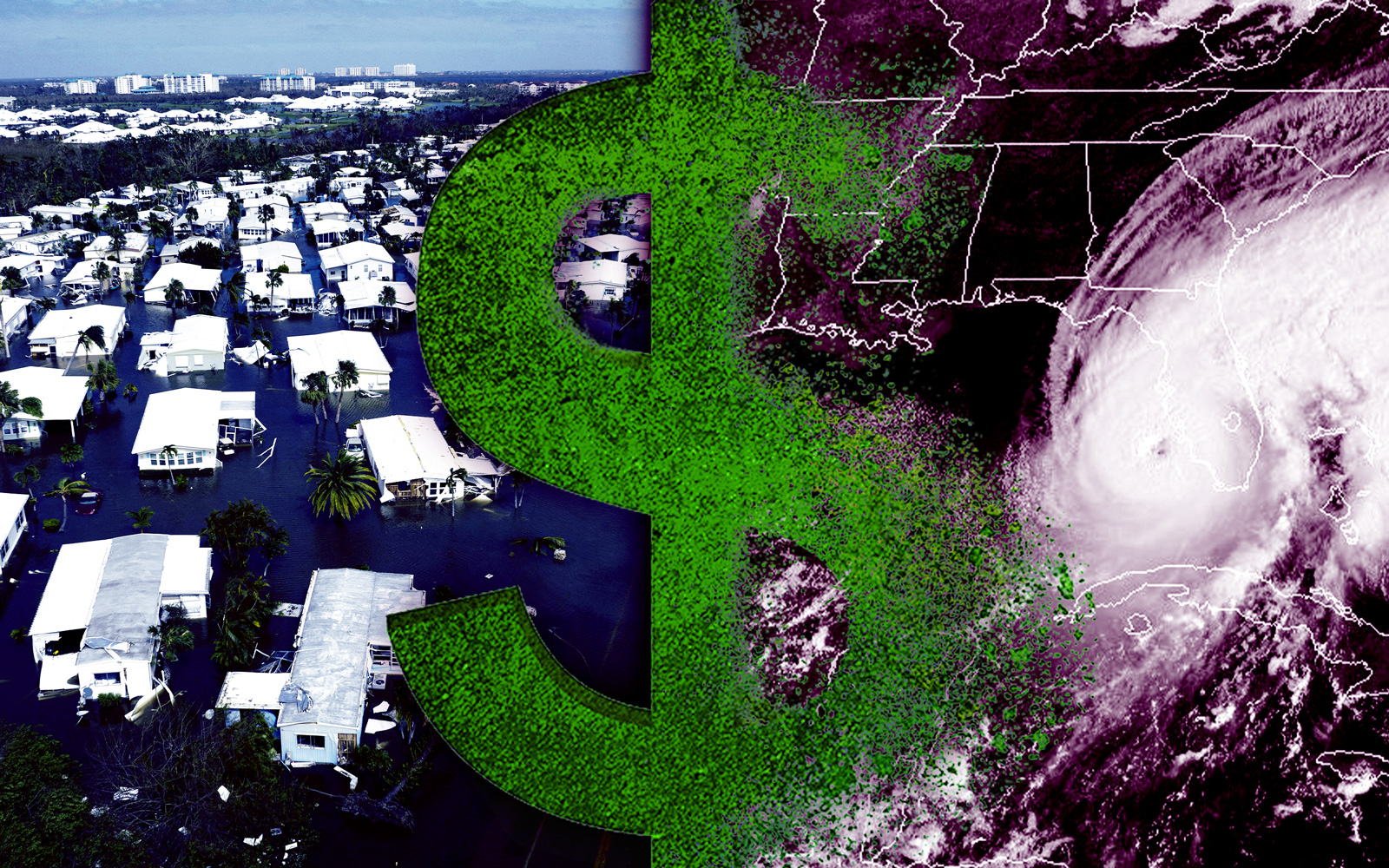 Condo insurance crisis in South Florida could push owners to sell
Condo insurance crisis in South Florida could push owners to sell
Trending
More sticker shock ahead as Florida’s property insurance crisis worsens
15 insurers have stopped writing new business in Florida since 2022

Farmers Insurance’s decision to stop writing new policies and not renew existing ones in Florida is adding fuel to the property insurance fire in the state.
Farmers said its decision was “necessary to effectively manage risk exposure.” Though the company isn’t a major player in the state’s insurance market, the move could be indicative of more to come. About 100,000 policies in Florida are affected. Farmers also capped its coverage in California, marking at least the third major property insurance company to reduce its exposure in the state.
Some insurers have stopped writing new business, scaled back or gone out of business across Florida. As a result, it’s become more difficult and expensive for property owners to secure sufficient coverage. Premiums have more than doubled for some.
Lawmakers passed legislation in December that makes it harder for homeowners to sue insurance companies, which insurance brokers and experts say is intended to lure back insurers that exited Florida’s marketplace. Nearly 80 percent of all homeowners insurance lawsuits filed in the U.S. over claims derive from Florida, but the state accounts for only 9 percent of claims that insurers pay out.
The law eliminates insurers having to pay one-way attorneys’ fees and assignment-of-benefits contracts under property insurance policies.
Mark Friedlander, director of the Insurance Information Institute, said that trial attorneys filed 280,000 lawsuits in the days leading up to the law taking effect, jamming up the courts. Those lawsuits were primarily for property and auto claims.
“Even though we are very supportive of the legislation … because the Florida market has been in such turmoil for so many years, we cannot say it’s going to resolve itself,” he said.
By the numbers
Friedlander said 18 residential insurers are on the state insurance regulator’s watch list, including two that are under enhanced monitoring. Friedlander declined to name those companies.
Fifteen insurers have stopped writing new business in Florida since January of last year, Freidlander said. Those insurers, which he also declined to identify, are still operating. Three companies have announced voluntary withdrawals in Florida since last year: Bankers Insurance Group, surplus lines insurer and AIG subsidiary Lexington Insurance Company, and Farmers.
Seven insurers declared insolvency since February 2022, and 14 are in liquidation, including United Property & Casualty Insurance Company, according to the state. St. Petersburg-based United Property & Casualty, which was ordered into receivership this past February, had about 135,000 policies in Florida.
The state-backed Citizens Property Insurance has become the largest insurer in Florida with 18 percent of the market. That has doubled in the last 18 months, he said.
“When you see your backstop insurer become the insurer of only choice… that’s a sign of extreme instability,” Friedlander added.
About 15 percent of Florida homeowners forego property insurance, which is more than double the national average. This means they’re on the hook for any damage from a hurricane, flooding or other weather event. The National Oceanic and Atmospheric Administration predicted in May that this hurricane season, which ends November 30, would result in up to 17 named storms.
Marcia Kaufman, CEO of New York-based Bayport Funding, said she’s hearing of lenders working with homeowners in Florida who “can’t tolerate” the cost of premiums surging.
Bayport, which works with developers, multifamily landlords and other commercial property owners, is increasing the estimated insurance cost as it underwrites loans in Florida to protect the borrowers against themselves. The historic Biltmore Hotel in Coral Gables was recently temporarily forced to reduce its windstorm insurance coverage to $50 million, half of what the city requires.
“If rates don’t increase at the rate we’re setting, then it’s extra profit for them later on,” she said. Kaufman added that insurance for new developments underway is at least doubling in cost. Her clients have been able to lock in coverage but it is “just much more expensive.”
Ryan Papy, president of Keyes Insurance, said premiums will likely increase in cost on average at least 20 percent next year, noting that property owners are “just sick and tired” of the increases.
But he said the new legislation should push carriers to become more competitive with the AOP, or “all other perils” premium that makes up part of a homeowners’ policy.
“Based on my conversations with multiple carriers, [AOP claims] have reduced by more than 50 percent since the legislation went into effect,” he said.
Consumers could have more options in the next two to three years, “unless we get hit by a storm,” Papy said. “That’s the caveat.”
Read more
 Condo insurance crisis in South Florida could push owners to sell
Condo insurance crisis in South Florida could push owners to sell
 Hurricane Ian most costly storm in Florida history
Hurricane Ian most costly storm in Florida history
 South Florida real estate on climate change: ‘Que Sera, Sera’
South Florida real estate on climate change: ‘Que Sera, Sera’



